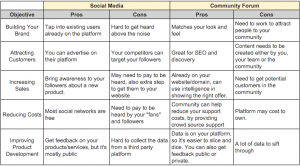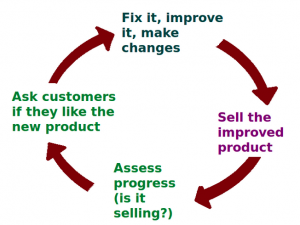Escape rooms are a trend popping up across the United States. The premise is simple (though the storylines vary): You enter a room with a group of strangers (or family members if you’re feeling particularly masochistic) and try to gather and solve clues that guide you how to get out of the room. Again, the premise is simple, but the execution is not. Such is the case with any creative project your team takes on.
In theory, the goal of a creative project is delivering a client from one marketing existence to another. Sounds pretty simple, no?
But along the way, things tend to get complicated. Team communication suffers a breakdown, or deadlines are missed. Visions of collaboration that could be appendices in Thomas More’s Utopia go unrealized. Hair is torn; coffee is mainlined. Luckily, you can avoid this charnel field of project disarray by transitioning from traditional to integrated project management (IPM).
So, what is IPM? We defined it in an earlier post, but to save you the click, below is a summary.
IPM in a Nutshell (This Time with Feeling)
Integrated project management is an approach to PM that is more holistic than the traditional silos unenlightened PM’s have applied to workflows in the past. IPM incorporates all the processes, resources, and stakeholders that touch on a project as it moves from point A to B. It ensures the right voices are heard so that the final outcome truly reflects the client’s goals, instead of the default byproduct of your team’s workflow.
That’s an important difference to note: What your system produces on autopilot (even with the best of intentions) isn’t always in line with what the client wants. IPM allows for a high-functioning type of collaboration that yields results without sacrificing vision.
Let’s dive deeper into how adopting IPM can help your creative teams turn table stakes into a winning hand.
The Insights of Collaboration
One of the major benefits of integrated project management is the bird’s eye view you can gain of your entire client lifecycle from proposal to completion. Without this perspective, it’s easy for your creative teams to fall into cycles that produce static results without improvement.
There is no shortage of perspectives to tap into during a creative project. And while it’s easy to chat up an account manager about scope creep during a coffee break, that information usually isn’t elevated to the level where it can be recognized as a pattern, rather than the isolated habits of a fickle client.
Assuming this pattern of scope creep exists and can be communicated to your sales team in a formal way, they can use it to inform how they sell retainers. Without this communication thread, your account management team’s morale might be pitted against your sales team’s drive to succeed.
Or, approach it from a financial perspective (maybe you like watching the daily rumble between your sales reps and account managers.) If your account management team is able to keep a finger on the pulse of your finance department, they can tell which projects lead to panic attacks and which lead to financial elation. And no one’s day has ever been ruined by a happy finance department.
Perspective Is Priceless
Fundamentally, IPM is about facilitating communication between the essential parts of your team. From your field reps selling the value of your services to your finance department tracking those hard-won margins, IPM allows you to connect the different sides of your team’s collective brain.
In the agency world, there’s a struggle to balance the impulse to put on all the different hats with a desire to focus on the lever that’s producing the most revenue or the best results in any given moment. This is trouble not only at a company level but also for individuals.
There’s a popular meme floating around LinkedIn attributed to Richard Branson that says, “Train your people so they can leave; treat them so well they won’t want to.” Or something to that effect. Integrated project management provides a baked-in training to make your creative team more aware of how multifaceted projects tend to be. This is not only an important career lesson, but it also creates an invaluable dynamic for your agency.
The more your teams collaborate with one another, and the more invested they are in each other’s success, then the higher the collective tide will rise beneath your company’s ship. IPM not only streamlines the work your agency does for clients, but it also elevates your performance as a company.
Escaping Traditional Project Management
Part of the fun of escape rooms is that people are driven to reveal strengths that you might never have suspected they had. But the core challenge is maintaining steady dialogue throughout the entire process; otherwise, people tend to peel off and fixate on a bike lock they’re certain is the most important puzzle in the room (Spoiler alert: It wasn’t.)
Think about this in the context of your team. If they are working in isolation or with limited collaboration, there’s a good chance you’re missing out on really valuable moments of spontaneous problem-solving. One of the worst things for a creative person is to fixate on a problem without allowing room for perspective. And really, that’s the worst thing for any person—to fixate. It’s easy to become lost in your problems when you work in a siloed environment. Integrated project management works to alleviate that myopia.
If your teams continue to fixate on that friggin’ bike lock because it seems important, they might be able to solve small problems in the moment, but they’ll do so by sacrificing long-term gains.
If there were a process to help you identify and sell your best performing retainers, from both a client satisfaction and revenue growth perspective, wouldn’t you want to implement that immediately?
If you’re a creative agency, then your project workflow is your lifeblood. Every deadline you miss, every budget that’s shot, and every client that’s pissed brings you one step closer to a desperate situation. Instead, do the work now to bring an integrated project management process to your creative team and share the value of an interconnected framework. Your team will be more successful, your clients will be more successful, and you’ll have solved a puzzle that leaves most companies trapped and defeated.
Business & Finance Articles on Business 2 Community
(80)






